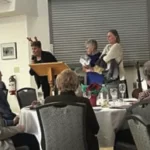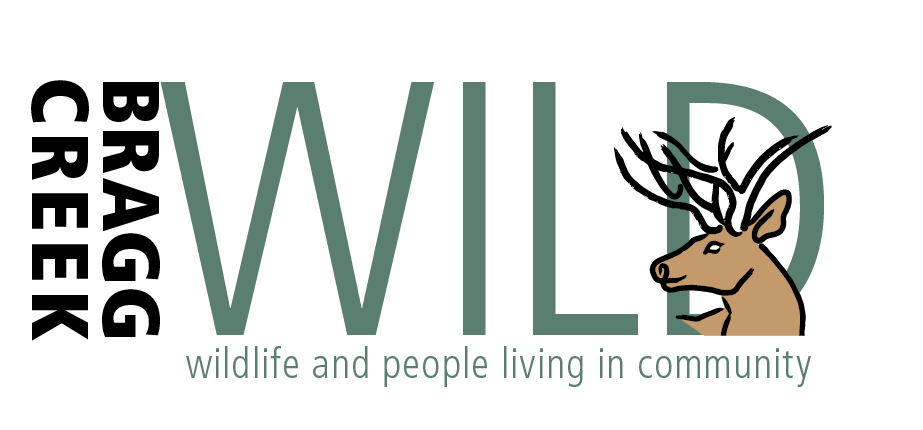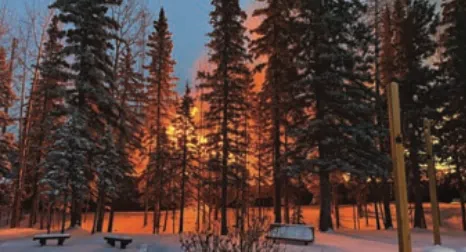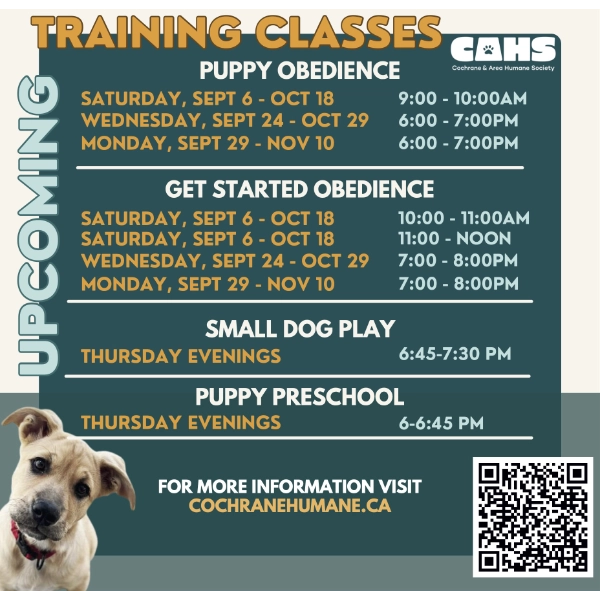The Hidden Dangers of Food Attractants to Wildlife and Wild Smart Holiday Tips
There have been recent sightings of raccoons in the Redwood Meadows area, with reports of garbage and compostable being ravaged. Recently, a witness encountered a raccoon carcass while walking along the berm near the community. Unsecured waste can cause serious problems for both animals and the broader ecosystem. Here’s how food attractants—anything from garbage to bird feeders—can harm wildlife:
- Dependency on Human Food: Wildlife accustomed to human-provided food may lose their natural foraging behaviours, leading to malnutrition or poor health.
- Health Risks: Processed foods and certain substances can be toxic to animals, while high-calorie, low-nutrient foods can lead to obesity and other health problems.
- Disruption of Ecosystems: Attractants can alter animal movements and behaviours, disrupting local ecosystems and food webs.
- Human-Wildlife Conflicts: Animals that associate humans with food may approach urban areas, leading to conflicts, property damage, and even attacks.
How to Reduce the Risk:
- Store food securely and dispose of waste properly.
- Avoid feeding wildlife, as this can cause more harm than good.
- Use wildlife-proof containers to keep animals away from food.
Fireworks and Their Impact on Pets and Wildlife
While fireworks bring excitement and celebration, they can also have devastating effects on pets and wildlife. The noise, lights, and pollution from fireworks pose a serious threat to animals:
- Stress and Anxiety: Loud noises from fireworks can cause pets to tremble, hide, or even injure themselves in attempts to escape. Wildlife may flee their habitats, become disoriented and risk being injured.
- Disruption of Natural Behavior: Fireworks can interfere with breeding cycles, migration patterns and feeding habits, threatening the survival of different species.
- Pollution: Fireworks release harmful chemicals into the air, contributing to respiratory issues in pets and wildlife.
- Light Pollution: Bright flashes of light can disorient pollinators and nocturnal creatures, affecting their natural behaviours.
How to Protect Animals During Fireworks Displays:
- Keep pets indoors and create a calm, quiet space with soothing sounds.
- Support regulations that limit fireworks near wildlife habitats.
- Avoid bright or flashing lights that could disturb nearby ecosystems.
Wildlife-Friendly Holiday Decorations
The holiday season is a time for celebration, but it’s also an opportunity to decorate in a way that supports wildlife and reduces environmental impact. Here are sometips for creating a wildlife-friendly holiday atmosphere:
- Use Natural Materials: Opt for pinecones, wood, dried flowers, and berries. These materials are compostable or reusable and blend naturally with the environment.
- Avoid Toxic Decorations: Steer clear of tinsel, glitter, and plastic items that can harm wildlife if ingested.
- Use Energy-Efficient Lights: Choose LED or solar-powered lights to reduce energy consumption while still brightening up your home. Lights in the red/orange/ purple colour spectrum are most favourable, whereas wildlife is negatively affected by white and blue lights.
- Use a Timer: Choose a reasonable timeframe during waking hours to automatically set your lights to come on and turn off when you go to bed. You’ll limit exposure to your wild neighbours and save energy, too!
- Provide Shelter for Animals: Add wildlife shelters like birdhouses or bat boxes to your decor, providing protection for animals during harsh weather.
- Plan for Clean-Up: After the holidays, carefully clean up decorations to avoid leaving litter that could harm wildlife.
Whether it’s being mindful of food attractants, protecting animals from fireworks, or choosing eco-friendly holiday decorations, there are many ways we can help safeguard wildlife and the environment during the festive season. By making small, responsible choices, we can celebrate the holidays in harmony with the natural world.
Join Bragg Creek Wild in making a positive impact on wildlife and the environment this season. Share your wildlife-friendly practices with us, and stay tuned for more updates on sustainable living with our wild friends!
Happy Holidays!
Bragg Creek Wild
www.braggcreekwild.ca
braggcreekwild@gmail.com – 403 200 9961
People and wildlife living in community


























